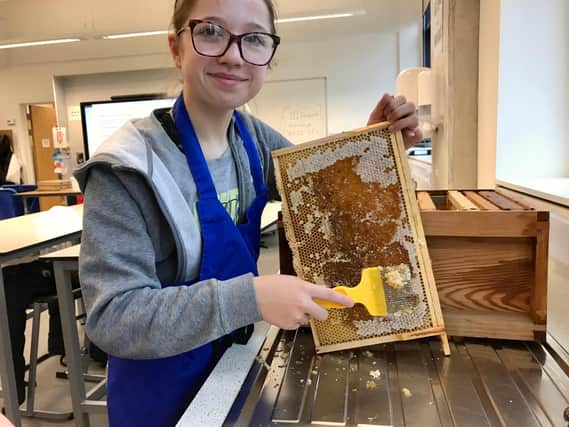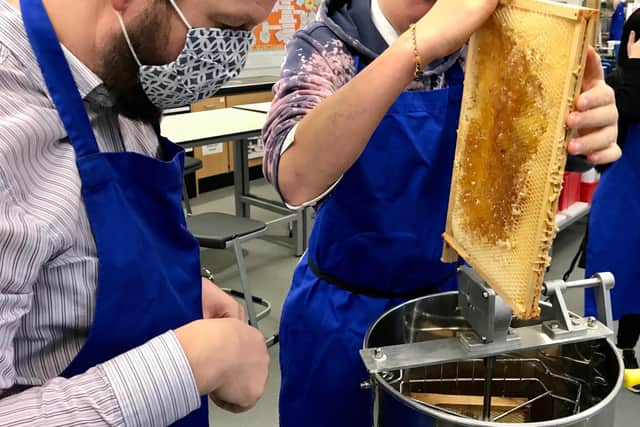Pupils buzzing after getting first batch of honey from school beehives


Biology teacher Stephen Hamilton said classes have been a hive of activity as students successfully established bee colonies, despite safety challenges of tending to beehives on the school roof during covid-19 restrictions.
From building the wooden hives from scratch in craft, design and technology class to putting the first batch of honey into jars to send home as Christmas gifts, S3 students have been hands-on from the start of the project.
Advertisement
Hide AdAdvertisement
Hide AdMr Hamilton and colleague David Dowsett sourced the bees with cash help from Fountainpark businesses after completing a beekeeping course. Businesses at the park also supplied a honey extractor to harvest the liquid gold. The school is now looking at establishing a course with a qualification for students.


Mr Hamilton said: "There's been such a lot of interest from the young people. When they extracted the first honey they were really into it. It was one of the most joyous days of teaching in a long time. Even some of the students who don't always engage well in class were buzzing. It brought a sense of achievement, they were proud and excited by the results of their efforts. Hands on activities like this can really motivate young people."
Students have been checking in on the colonies and even been involved in feeding the bees by adding sugar syrup to replace the honey to help them get through the winter. But what they are really excited about is getting to handle them. Mr Hamilton said: "What they are most excited about is putting on the suit and net helmet. It can be daunting, stepping into 30,000 bees. It's really noisy and easy to tell if they are in a good mood. If they're not it's a short check in to avoid getting stung!"
One of the goals for the project is to recycle the honey back into the school. It can be used in cooking, to produce wax pigments and paints for art classes and the advanced higher science will also be looking under the microscope at bees and their parasites. They also hope they can sell honey as part of enterprise projects and the gardening group is researching planting for bees. Their eco group is also hoping the project will show how the school is protecting biodiversity as they work towards an application for a green flag award.
Advertisement
Hide AdAdvertisement
Hide AdMr Hamilton said: “In the first year we’ve really just been learning to keep the bees alive. There’s not much activity over the winter but it will really pick up in Spring. As the colony grows, lays more eggs and produces more honey there are so many possibilities to learn and integrate that into subjects across the school curriculum. The young people have a real interest in conservation, they have such perspective on all the things they need to do to make the world better for future generations. This really feeds into that enthusiasm. And it’s something that connects them to the wider community. We plan to talk to prisoners who have been building and marketing hives, to learn from their success. There’s so much potential in this.”